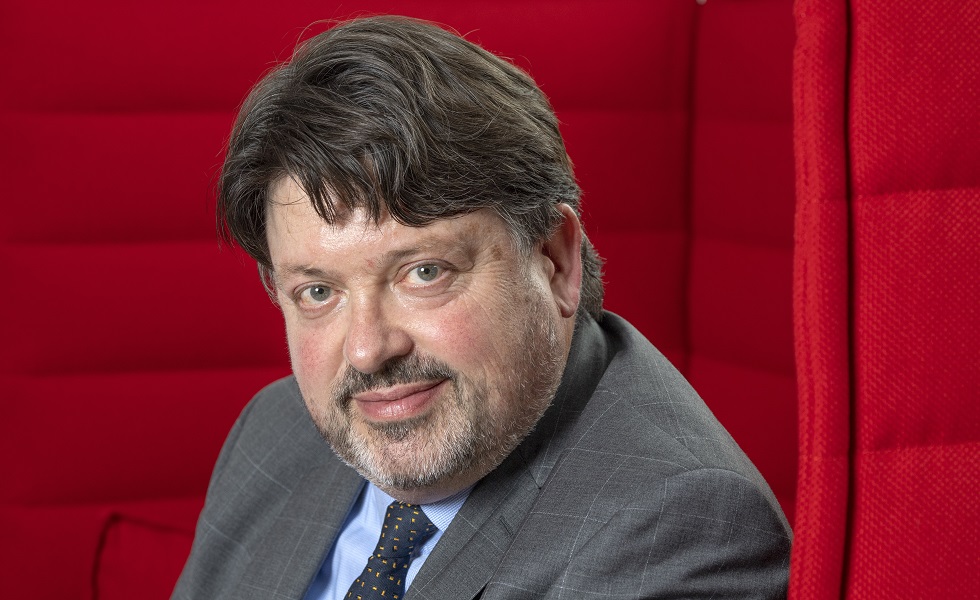Han Dieperink: Focus and patience are rewarded
Han Dieperink: Focus and patience are rewarded

This column was originally written in Dutch. This is an English translation.
By Han Dieperink, written in a personal capacity
Three years ago, things were looking bleak for investors in Nvidia. The share price fell from £33.38 to £11.23: a loss of 66% in less than a year. Many investors panicked and sold their shares. Analysts warned of major problems in the chip sector. But those who held on to their shares were well rewarded.
Nvidia turned out to be perfectly prepared for the AI revolution. The company had spent years working on powerful processors for gaming. That same technology proved to be perfect for artificial intelligence. This example illustrates two important things. First, temporary declines say little about the true value of a company. Second, companies that focus on one thing perform better than companies that dabble in everything.
Focus works better than diversification
Focused companies systematically perform better than companies that spread their energy across many different activities. The difference may seem small, but over long periods of time, the differences become significant due to the compound effect. This also applies to investors. Research shows that active traders underperform by 7% annually compared to investors who simply hold on to their shares.
The conclusion is simple: the more people trade, the worse their results. Active trading and too much diversification cost money and returns. You pay transaction costs with every purchase and sale. These costs eat into your profits.
In addition, active investors often make mistakes based on emotion. They become overconfident after a few successes. They sell in panic during downturns. They chase trends that are already over. And they think that complex strategies are better. These mistakes lead to poor timing when buying and selling. Companies also suffer from this. Companies that do too many different things often have unclear strategies and do not spend their money optimally.
Warren Buffett's golden rule
Warren Buffett says it is best to hold shares forever. His strategy has four key points. First, look for companies with strong advantages, companies that are difficult to copy. Then think long term and don't be swayed by daily price fluctuations.
Thirdly, take advantage of compound growth by waiting long enough to see exponential growth. And finally, stay calm: ignore market volatility and stick to your plan. This is exactly what Nvidia investors had to do in 2022. Albert Einstein called compound interest “the eighth wonder of the world”.
This principle explains why focus is so powerful. Compound growth means that you not only earn a return on your initial investment, but also on all the profits you have made previously. The effect becomes increasingly greater. This also works for companies. Focused companies can direct all their energy, knowledge and attention to one thing. Year after year, they improve small things and those improvements accumulate. Companies that are involved in everything miss out on this effect. Frequent traders disrupt this mechanism. They constantly take money out of the market and thus miss out on the phase of exponential growth. As Jack Bogle, founder of Vanguard, said: “Don't just do something, stand there.”
The difficult year 2025
This year is challenging for many investors in growth stocks. Several factors are at play simultaneously. The US dollar has fallen sharply in value since the beginning of 2025. This is hitting European investors particularly hard, as many growth stocks are US companies. Although large growth stocks such as Nvidia and Microsoft performed well, this was less noticeable because these companies now also carry significant weight in the indices used as benchmarks. An investment in such a big name quickly reaches the usual limits.
Chip suppliers such as ASML, ASM International and Applied Materials are struggling. There is little investment in ordinary chips (non-AI) and there is uncertainty about US trade policy. But these problems are temporary. During the coronavirus pandemic, there was a lot of investment in chip factories. There were major shortages of chips for computers and smartphones. When that demand disappeared, surpluses arose. These surpluses are now gradually disappearing. Investments will increase again soon. This cyclical pattern shows why long-term investors should ignore temporary declines.
Software companies such as Salesforce, ServiceNow and Wolters Kluwer are concerned about the impact of AI. However, these companies are well placed to integrate AI into their products and become more productive. Their focus on specific markets is helping them with this transformation. In medical technology, Thermo Fisher and Danaher experienced a slowdown in growth due to lower demand from biotech companies. However, there are signs of recovery and the outlook remains positive. The absence of European bank shares is also not helping this year. Banks are performing well due to improved conditions, but their growth prospects remain limited by low credit growth in the eurozone. They do not belong in a portfolio of growth shares.
Focus and patience win
The combination of compound growth, lower costs, avoiding emotional mistakes and focusing on strong companies creates a powerful advantage. The length of time you are in the market is more important than timing the market. At a time when many companies and investors lack a clear strategy, focus and patience offer a proven path to success. The power of compound growth and focused strategies is not theory. These are measurable results that have rewarded and will continue to reward successful investors and entrepreneurs.








